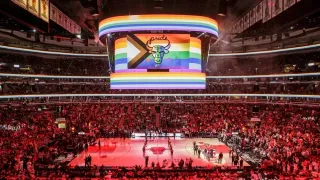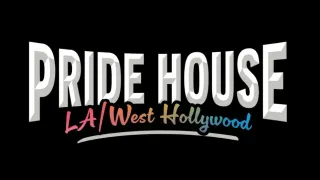
Nov 17
Lady Gaga’s Raw Truth: “Lucky to Be Alive” — How Her Lithium Journey in ‘A Star Is Born’ Lights the Way for Queer Mental Health
READ TIME: 3 MIN.
Lady Gaga is no stranger to shining a light in dark places—her music, activism, and very presence have long been beacons for LGBTQ+ communities. But this week, the pop icon and Oscar-winner peeled back the glitter even further, revealing to Rolling Stone that during the filming of "A Star Is Born", she was “on lithium” and endured a psychotic break so severe she considers herself “lucky to be alive” .
Her confession slices through the myth that fame is a shield. In 2017, Gaga was at the peak of her powers—lighting up the Super Bowl, headlining Coachella, and dazzling audiences with Bradley Cooper in "A Star Is Born". But as she told Rolling Stone “There was one day that my sister said to me, ‘I don’t see my sister anymore.’ And I canceled the tour. There was one day I went to the hospital for psychiatric care. I needed to take a break. I couldn’t do anything… I completely crashed” .
For LGBTQ+ audiences, Gaga’s openness is more than celebrity confession—it’s representation in its rawest form. Mental health struggles affect LGBTQ+ folks at disproportionately high rates, owing to everything from societal rejection to systemic barriers in care. Gaga’s willingness to say, “I feel really lucky to be alive. I know that might sound dramatic, but we know how this can go,” is a coded message to queer and trans people everywhere: your pain is real, your survival is not a given, and you are not alone .
Her story echoes through a community that’s still forced to fight for acknowledgment—where talking about medication, psychiatric care, or psychotic breaks can be clouded with shame. Instead, Gaga’s candor flips the script: survival is an act of defiance, and seeking help is a badge of courage.
Gaga’s journey through the making of "A Star Is Born"—and the subsequent crash that led her to cancel the final stretch of her Joanne World Tour—underscores a truth many queer people know too well: high achievement doesn’t immunize anyone from mental health struggles .
While Gaga cited “severe pain” from fibromyalgia at the time, she now reveals it was much deeper—a battle with her own mind that required hospitalization . For queer and trans performers, the pressure to be “on” and indestructible is familiar. In Gaga’s words: “There was a time where I didn’t think I could get better.”
Gaga also credits her fiancé Michael Polansky for helping her rediscover stability and self-love, saying, “Being in love with someone that cares about the real me made a very big difference…how do you learn how to be yourself with someone when you don’t know how to be yourself with anyone?” . For many in the LGBTQ+ community, the idea of chosen family—lovers, friends, siblings of the soul—remains a lifeline. Gaga’s testimony that love and support helped her survive is a reminder: healing is rarely solo work.
Today, she describes herself as “a healthy, whole person,” yet acknowledges that the journey is ongoing. “I have to talk myself out of ‘a panic attack’ during the intro for her… Mayhem Ball Tour,” she shared, noting that “the rehearsal of self saves me. Every cell in my body goes, ‘You know what to do’” .
Lady Gaga’s revelations arrive at a time when conversations about mental health—especially for LGBTQ+ people—are more urgent than ever. Her willingness to speak openly about medication, psychiatric care, and the terrifying possibility of not making it through, is an act of radical transparency. In a media landscape that often sanitizes or stigmatizes these realities, Gaga’s truth-telling is an invitation for all queer people: share your story, seek help, and let your vulnerability be part of your strength.
As Gaga once sang, “I’m on the right track, baby, I was born this way.” Sometimes, that means surviving by any means necessary—lithium, therapy, chosen family, and the courage to say, “I’m lucky to be alive.” That is queer resilience at its fiercest, most fabulous, and most necessary.
If you, or someone you know, is struggling with mental health, LGBTQ+ organizations like The Trevor Project (www.thetrevorproject.org) and National Alliance on Mental Illness (www.nami.org) offer resources, hotlines, and community.






